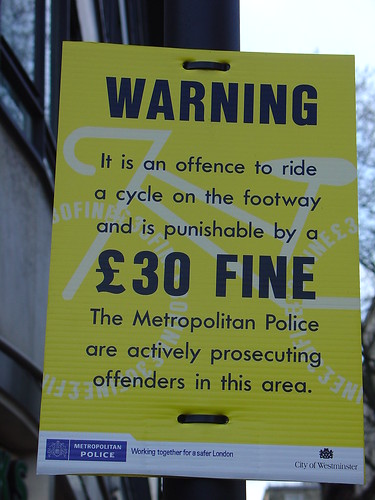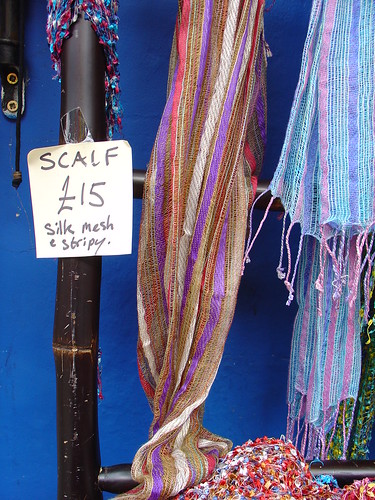London signage 02: Dummy “it” in non-parallel construction.
Deuxième partie de notre série sur les panneaux londoniens. Celui-ci pose un problème de syntaxe.
For our second instalment let’s turn our attention to a bit of syntax. This sign adorns a narrow footpath from Charing Cross train station down to the river Thames:
If we give the first sentence its final punctuation back and try to group together what goes together, we get, on the surface, this:
- [It [is an offence [to ride a cycle [on the footway]]] and [is punishable [by a £30 fine]]].
Now I know I have a high tolerance for non-parallel constructions in English, but this one bugs me. The culprit? The first and the second instance of “it” aren’t the same: in the first half of the sentence, it is a dummy subject; the only reason it’s there at all is because the sentence needs a subject, however perfunctory. there’s another way of saying the same thing, using the Vb+ing form: Riding a cycle on the footway is an offence. On the other hand, the (virtual) it in it is punishable by a £30 fine replaces the entire referential subject of the first half, riding a cycle on the footway.
But if we pull that part out and front it, the sentence’s okay for me: Riding a cycle on the footway is an offence and punishable by a £30 fine. Weird.
(On Flickr and IRC, the discussion about the grammaticality of the sentence got sidetracked into a) whether cycle is the appropriate word (it is indeed the legal term) and b) whether it makes sense to restrict cycling (in this particular place — a narrow walkway filled with foreign teenagers in London for the first time — I’d say it’s defensible, though the Met’s priorities should lie elsewhere).
[The spell-checker didn’t know: footway.]




